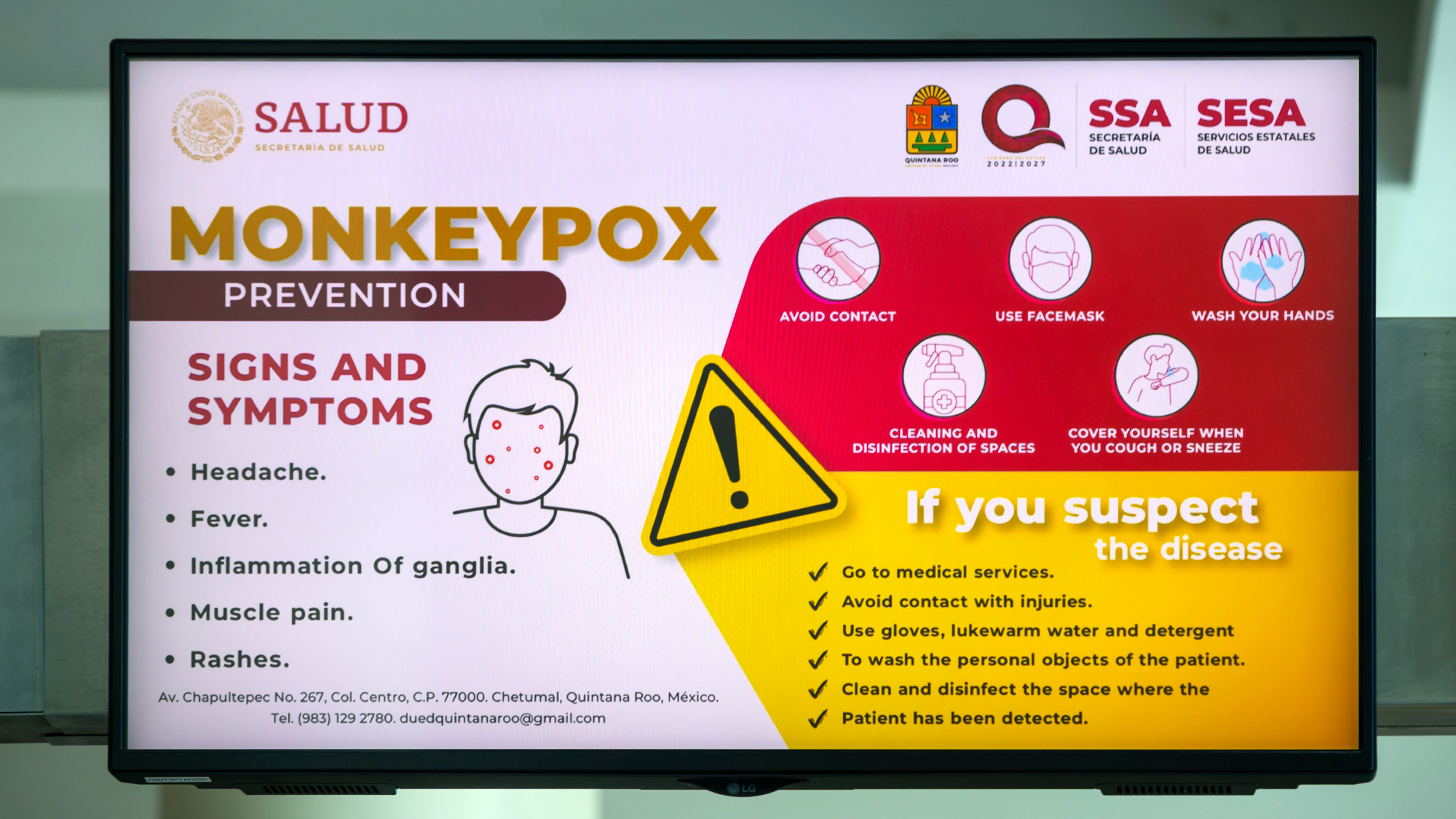WHO declares mpox a global health emergency
An outbreak of the viral disease formerly known as monkeypox continues to spread in Africa


A free daily email with the biggest news stories of the day – and the best features from TheWeek.com
You are now subscribed
Your newsletter sign-up was successful
What happened
The World Health Organization (WHO) declared an mpox outbreak in Africa a "public health emergency of international concern." The highly infectious strain of mpox, formerly called monkeypox, has jumped from the Democratic Republic of Congo (DRC) to a dozen other African countries.
Who said what
The spread and adaptability of this mpox strain is "very worrying," said WHO Director-General Tedros Adhanom Ghebreyesus. "A coordinated international response is needed to stop these outbreaks and save lives." The WHO last designated mpox a global emergency in 2022, when an outbreak affected nearly 100,000 people, "primarily gay and bisexual men, in 116 countries," The New York Times said. That outbreak killed about 200 people.
In the DRC, children make up "the majority of the 14,000 reported cases and 511 deaths so far" this year, NPR said. The global health emergency designation will unlock certain resources to help contain and neutralize this outbreak. But it's a "failure of the global community that things had to get this bad to release the resources needed," Michael Marks, a professor at the London School of Hygiene and Tropical Medicine, told The Associated Press.
What next?
Declaring mpox a global health emergency is "intended to prompt member countries to begin preparing for the virus' appearance and to share vaccines, treatments and other key resources with poorer nations," the Times said. The Centers for Disease Control and Prevention alerted American clinicians about the outbreak last week.
The Week
Escape your echo chamber. Get the facts behind the news, plus analysis from multiple perspectives.

Sign up for The Week's Free Newsletters
From our morning news briefing to a weekly Good News Newsletter, get the best of The Week delivered directly to your inbox.
From our morning news briefing to a weekly Good News Newsletter, get the best of The Week delivered directly to your inbox.
A free daily email with the biggest news stories of the day – and the best features from TheWeek.com
Rafi Schwartz has worked as a politics writer at The Week since 2022, where he covers elections, Congress and the White House. He was previously a contributing writer with Mic focusing largely on politics, a senior writer with Splinter News, a staff writer for Fusion's news lab, and the managing editor of Heeb Magazine, a Jewish life and culture publication. Rafi's work has appeared in Rolling Stone, GOOD and The Forward, among others.
-
 Switzerland could vote to cap its population
Switzerland could vote to cap its populationUnder the Radar Swiss People’s Party proposes referendum on radical anti-immigration measure to limit residents to 10 million
-
 Political cartoons for February 15
Political cartoons for February 15Cartoons Sunday's political cartoons include political ventriloquism, Europe in the middle, and more
-
 The broken water companies failing England and Wales
The broken water companies failing England and WalesExplainer With rising bills, deteriorating river health and a lack of investment, regulators face an uphill battle to stabilise the industry
-
 A Nipah virus outbreak in India has brought back Covid-era surveillance
A Nipah virus outbreak in India has brought back Covid-era surveillanceUnder the radar The disease can spread through animals and humans
-
 Is the US about to lose its measles elimination status?
Is the US about to lose its measles elimination status?Today's Big Question Cases are skyrocketing
-
 Mixed nuts: RFK Jr.’s new nutrition guidelines receive uneven reviews
Mixed nuts: RFK Jr.’s new nutrition guidelines receive uneven reviewsTalking Points The guidelines emphasize red meat and full-fat dairy
-
 Trump HHS slashes advised child vaccinations
Trump HHS slashes advised child vaccinationsSpeed Read In a widely condemned move, the CDC will now recommend that children get vaccinated against 11 communicable diseases, not 17
-
 A fentanyl vaccine may be on the horizon
A fentanyl vaccine may be on the horizonUnder the radar Taking a serious jab at the opioid epidemic
-
 Health: Will Kennedy dismantle U.S. immunization policy?
Health: Will Kennedy dismantle U.S. immunization policy?Feature ‘America’s vaccine playbook is being rewritten by people who don’t believe in them’
-
 How dangerous is the ‘K’ strain super-flu?
How dangerous is the ‘K’ strain super-flu?The Explainer Surge in cases of new variant H3N2 flu in UK and around the world
-
 Stopping GLP-1s raises complicated questions for pregnancy
Stopping GLP-1s raises complicated questions for pregnancyThe Explainer Stopping the medication could be risky during pregnancy, but there is more to the story to be uncovered
